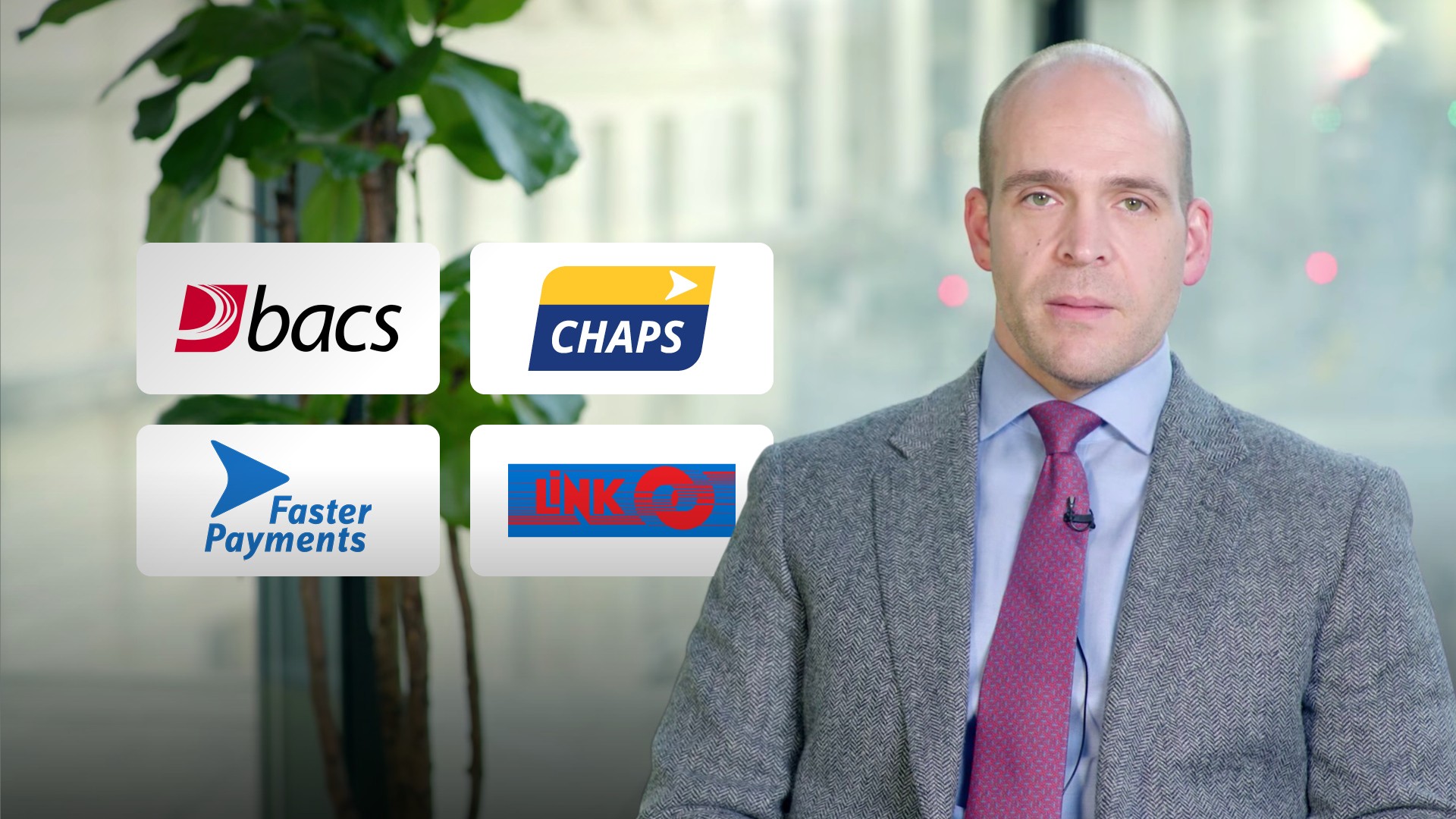
Access to Payment Schemes for Fintechs

Michael Bond
15 years: Financial technology & banking
Since 2017 the Bank of England has provided a framework for non-bank payment service providers to access all UK domestic payment schemes. In this video, Michael outlines the route for Fintechs to get access to payment schemes.
Since 2017 the Bank of England has provided a framework for non-bank payment service providers to access all UK domestic payment schemes. In this video, Michael outlines the route for Fintechs to get access to payment schemes.

Access to Payment Schemes for Fintechs
8 mins 50 secs
Key learning objectives:
Recognise the components of a payment scheme
Identify Fintech’s increasing role in payments
Understand the schemes provided by the UK and the Bank of England
Overview:
As Fintech continues to expand, they will increase their role in the day-to-day life of making and receiving payments for retail and wholesale customers. They will continue to get access to commercial banks and markets as they encourage growth and technological innovation in finance.
What is the Brief Overview?
With more Central Banks opening up their domestic payment schemes to Non-Bank Financial Institutions there are several options a Fintech licenced as a Payment Service Provider (PSP) has to do to get access to Payment Schemes. The UK and the Bank of England has provided a framework for Non-Bank Payment Service Providers to access all UK domestic payment schemes; including BACS, CHAPS, Faster Payments, Cheque & Credit and LINK.
What is the Background of PSPs?
FinTechs that provide payment services are either registered or authorised as a Payment Service Provider with a country’s regulator. Those that provide services to retail and SME customers are having an increasing role within the payments landscape, largely down to them gaining a larger market share of all payment activity. Despite this, many of them can have issues gaining access to domestic payment systems, whether that be as an Indirect Participant or a Direct Participant.
What is a Payment Scheme?
A payment scheme is a country’s domestic payment infrastructure that facilitates all retail and wholesale customers to make and receive payments. It is typically split into two parts; Real Time Gross Settlement (RTGS) and Automated Clearing Houses (ACH). RTGS is seen as the systemically critical payment and settlement scheme as it undertakes intraday payment clearing in real time, more often for wholesale providers' high value settlements. ACH is therefore used for retail payments, paper instruments (such as cheques), and some card transactions. ACH systems rely on RTGS to settle balances from each clearing cycle. ACH is designed to handle and process mass payments, and within a country there will often be more than one scheme. In the UK there is BACS and the cheque Clearing Company and LINK.
Why Should a Central Bank Provide Access?
PSPs will bring innovation and competition to the industry. They have focused their product and approach with fresh thinking typically via a digital offering that will disrupt the incumbent financial providers and provide a better solution for consumers. To provide payment services they require either a Commercial Bank or a Central Bank to give them access to be able to make and receive payments on behalf of their customers.
The decision to provide Indirect Access to a PSP lies entirely with a Commercial Bank, whilst Central Banks control Direct Access to its Domestic Payments Schemes. If Commercial Banks, as commercial entities, decide not to provide Indirect Access, perhaps due to risk appetite; then without an alternative solution, the ability for PSP’s to operate in a particular domestic market will cease, resulting in a lack of competition and innovation for the country, which could inhibit consumers ability to take advantage of advances in payments.
How do different payment infrastructures get access?
Access rules to domestic payment infrastructures vary from country to country, with most central banks applying the CPMI-IOSCO “Principles for Financial Market Infrastructures”, or something similar, to the access criteria required to domestic payment systems.In the UK, the Bank of England provided a framework to provide direct access for Non-Bank Payment Service Providers to access all UK domestic payment schemes; BACS, CHAPS, Faster Payments, Cheque & Credit and LINK. This framework outlined the application process and eligibility criteria for qualifying non-bank PSPs to have Direct Access. For those PSPs that are an Authorised E-Money institution or payment institution the process is as follows; pass eligibility criteria set by each payment scheme, open a Settlement Account with the Bank of England, open a Settlement Collateral Account and completion of a supervisory assessment by the FCA.
What are the general requirements to gain access?
For many Fintechs gaining direct access requires a degree of transaction volume to justify the high level of investment required to gain access; namely technical and financial, which can be substantial in order to meet the criteria the central bank requires. The technical requirements normally entail having robust infrastructure to connect with the central bank’s systems. The financial requirements are generally collateral requirements to cover any intraday default position in addition to any amounts that have been lodged to satisfy the pre-funded nature of the payment systems.

Michael Bond
There are no available Videos from "Michael Bond"

